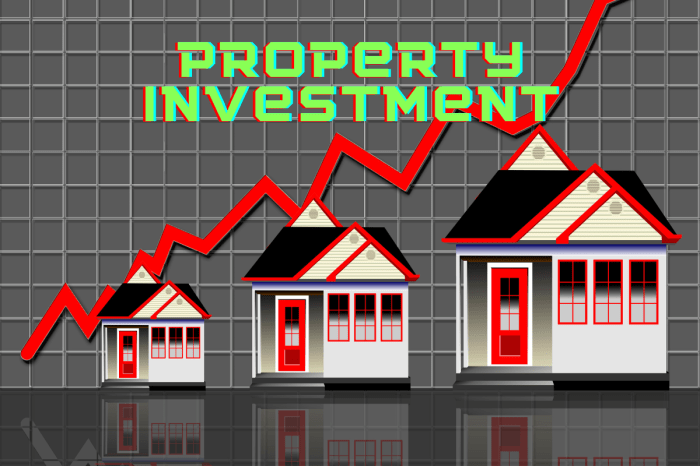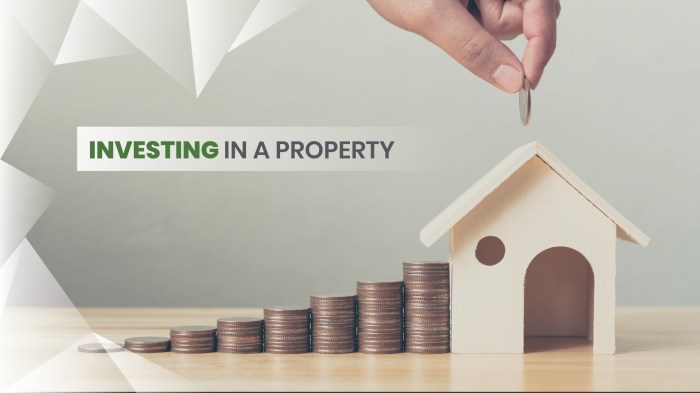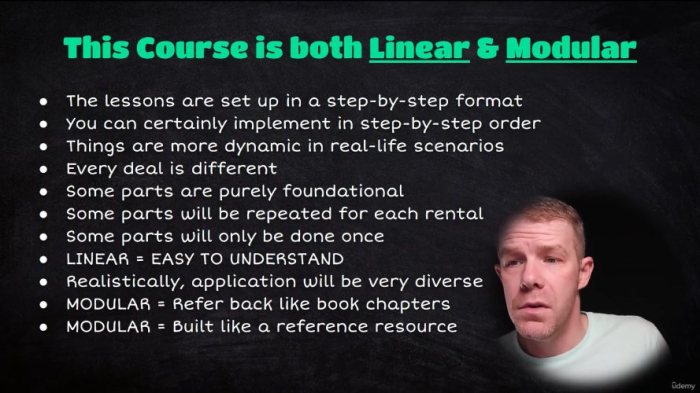Is It a Good Time to Buy Investment Property?

Is it a good time to buy investment property? This question is on the minds of many potential investors as they navigate the ever-changing real estate landscape. Interest rates, housing market fluctuations, and economic uncertainty all play a role in this decision. This guide will delve into the current market conditions, investment property considerations, financial planning aspects, legal and regulatory requirements, and property management strategies to help you determine if now is the right time to invest in real estate.
Understanding the current market conditions is crucial. Recent interest rate hikes have impacted mortgage affordability, while supply and demand dynamics in the housing market continue to evolve. The economic outlook also plays a significant role in shaping real estate values. By analyzing these factors, investors can gain valuable insights into the potential risks and rewards of investing in property.
Current Market Conditions

The current market conditions play a crucial role in determining whether it’s a good time to buy an investment property. Several factors, including interest rates, housing market dynamics, and the economic outlook, influence the attractiveness of real estate investments.
Interest Rates and Mortgage Affordability
Interest rates directly impact mortgage affordability. Higher interest rates increase monthly mortgage payments, making it more expensive to borrow money. Recently, the Federal Reserve has aggressively raised interest rates to combat inflation, leading to a significant increase in mortgage rates. This has made it more challenging for potential buyers to afford homes, especially first-time homebuyers.
For example, a 30-year fixed-rate mortgage with a 5% interest rate will result in higher monthly payments compared to a 3% interest rate.
Housing Market Dynamics
The housing market is currently characterized by low inventory and high demand. This imbalance has driven up home prices in many areas. While demand remains strong, rising interest rates have slowed the pace of price appreciation. However, the supply of homes for sale remains limited, which continues to support prices.
For instance, the National Association of Realtors reported that the median existing home price in the United States reached a record high in June 2023.
Economic Outlook and Real Estate Values
The economic outlook can significantly impact real estate values. Inflation, recessionary fears, and potential changes in monetary policy create uncertainty in the market. A strong economy typically supports real estate growth, while economic downturns can lead to price declines.
For example, during the 2008 financial crisis, the housing market experienced a significant downturn, with home prices plummeting across the country.
Investment Property Considerations

Investing in real estate can be a lucrative way to build wealth, but it’s crucial to understand the factors involved and compare it to other investment options before diving in.
Comparing Returns
When considering investment property, it’s essential to compare its potential returns with other asset classes, such as stocks, bonds, and mutual funds. Real estate offers unique advantages, including:
- Tangible Asset: Unlike stocks or bonds, real estate is a tangible asset that you can physically see and touch.
- Potential for Appreciation: Property values can increase over time, providing capital appreciation.
- Rental Income: Rental properties generate a steady stream of income, providing passive cash flow.
However, real estate also comes with risks, including:
- Market Volatility: Property values can fluctuate, and a downturn in the market can lead to losses.
- Illiquidity: Selling real estate can take time and effort, making it less liquid than other investments.
- Maintenance Costs: Owning a property involves ongoing maintenance and repair expenses.
The returns on investment property can vary significantly depending on factors such as location, property type, and market conditions. It’s crucial to conduct thorough research and consider your individual financial goals and risk tolerance before investing.
Key Factors to Consider
When evaluating investment properties, it’s essential to consider several key factors:
- Location: Choosing a location with high rental demand and potential for appreciation is crucial. Consider factors such as proximity to employment centers, schools, and amenities.
- Rental Income: Estimate the potential rental income based on market rates and vacancy rates. Aim for a property that generates enough income to cover expenses and provide a positive cash flow.
- Maintenance Costs: Factor in potential maintenance and repair costs, including utilities, property taxes, and insurance.
- Property Condition: Assess the condition of the property and any necessary repairs or renovations. Factor in the cost of these improvements when calculating your overall investment.
- Financing Options: Explore different financing options, such as mortgages and private loans, to determine the best fit for your situation. Consider the interest rates, loan terms, and closing costs.
Risks and Rewards, Is it a good time to buy investment property
Investing in real estate offers both potential rewards and risks:
- Rewards:
- Capital Appreciation: Property values can increase over time, providing potential for capital gains.
- Passive Income: Rental income can provide a steady stream of cash flow.
- Tax Advantages: Real estate investments can offer tax deductions for mortgage interest, property taxes, and depreciation.
- Hedge Against Inflation: Real estate can serve as a hedge against inflation, as property values tend to rise with inflation.
- Risks:
- Market Volatility: Property values can fluctuate, and a downturn in the market can lead to losses.
- Illiquidity: Selling real estate can take time and effort, making it less liquid than other investments.
- Maintenance Costs: Owning a property involves ongoing maintenance and repair expenses, which can be unpredictable.
- Vacancy Risk: Finding tenants and maintaining occupancy can be challenging, leading to lost rental income.
- Legal and Regulatory Issues: Owning real estate involves navigating legal and regulatory requirements, which can be complex and time-consuming.
It’s crucial to weigh the potential risks and rewards carefully and consider your individual financial situation and risk tolerance before investing in real estate.
Legal and Regulatory Aspects

Investing in real estate involves navigating a complex legal and regulatory landscape. Understanding these aspects is crucial for making informed decisions and ensuring compliance.
Zoning Laws and Building Codes
Zoning laws regulate how land can be used, while building codes establish minimum standards for construction and safety. These regulations can significantly impact investment decisions. For instance, zoning laws may restrict the type of property you can build or the number of units you can construct on a given lot. Building codes may necessitate specific materials, fire safety measures, or accessibility features. It’s essential to consult with local authorities to determine the applicable zoning and building codes for your investment property. Failing to comply with these regulations can lead to fines, legal challenges, and even the inability to obtain permits.
Property Management Strategies: Is It A Good Time To Buy Investment Property
Property management is a crucial aspect of real estate investing, and it directly impacts your returns. It involves overseeing the day-to-day operations of your rental property, from tenant screening and lease agreements to maintenance and rent collection.
Self-Management
Self-management offers the potential for greater control and cost savings, but it also requires significant time commitment and expertise.
- Pros:
- Cost Savings: You avoid paying management fees, potentially saving a significant portion of your rental income.
- Control: You have direct control over all aspects of the property, including tenant selection, rent setting, and maintenance.
- Flexibility: You can tailor your management approach to your specific needs and preferences.
- Cons:
- Time Commitment: Self-management requires significant time and effort, including tenant screening, lease negotiations, maintenance coordination, and rent collection.
- Expertise: You need knowledge of landlord-tenant laws, property maintenance, and financial management to handle all aspects effectively.
- Availability: You may need to be available at all hours to handle emergencies and tenant issues.
Professional Property Management
Hiring a professional property manager can provide expertise, efficiency, and peace of mind, but it comes at a cost.
- Pros:
- Expertise: Professional managers have experience in tenant screening, lease management, rent collection, and property maintenance.
- Efficiency: They handle all aspects of property management, freeing you from the day-to-day responsibilities.
- Availability: They are available 24/7 to handle emergencies and tenant issues.
- Networking: They often have established networks of contractors and vendors for repairs and maintenance.
- Cons:
- Cost: Management fees can range from 8% to 12% of gross rental income, reducing your overall profit.
- Less Control: You relinquish some control over tenant selection, rent setting, and maintenance decisions.
- Communication: It’s crucial to establish clear communication channels and expectations with the property manager.
Impact of Property Management on Investment Performance
The choice between self-management and professional property management significantly impacts your investment performance.
- Rental Income: Self-management can potentially increase your rental income by avoiding management fees. However, if you lack expertise or time, you may lose out on potential income due to poor tenant selection, inefficient rent collection, or delayed maintenance.
- Expenses: Professional management fees add to your expenses, but they can also reduce your overall costs by ensuring efficient maintenance, minimizing tenant turnover, and maximizing occupancy.
- Time Commitment: Self-management demands significant time investment, which can impact your personal life and other income-generating opportunities. Hiring a professional manager frees up your time to focus on other aspects of your business or personal life.
Key Responsibilities of Property Managers
| Responsibility | Impact on Investment Performance |
|---|---|
| Tenant Screening | Minimizes tenant turnover and bad debt by selecting reliable and responsible tenants. |
| Lease Management | Ensures compliance with landlord-tenant laws and protects your legal rights. |
| Rent Collection | Maximizes rental income by promptly collecting rent payments and minimizing late payments. |
| Maintenance and Repairs | Maintains the property’s value and tenant satisfaction by promptly addressing maintenance issues. |
| Financial Reporting | Provides transparency and accountability by tracking income and expenses and generating regular financial reports. |
Ultimately, the decision of whether or not to buy investment property is a personal one. It requires careful consideration of your financial situation, investment goals, and risk tolerance. By understanding the current market trends, weighing the potential returns and risks, and developing a sound financial plan, you can make an informed decision that aligns with your individual circumstances. Remember, seeking professional advice from a real estate expert or financial advisor can provide valuable guidance throughout this process.
FAQ Guide
What are the tax benefits of owning investment property?
Owning investment property can offer tax benefits such as deductions for mortgage interest, property taxes, and depreciation. Consult a tax professional for specific guidance.
How can I find the right investment property?
Start by identifying your investment goals and budget. Consider factors like location, rental income potential, and property condition. Consult with a real estate agent for guidance.
What are the common risks associated with investing in real estate?
Risks include market fluctuations, vacancy rates, unexpected repairs, and potential tenant issues. Thorough research and due diligence can help mitigate these risks.
The question of whether now is a good time to buy investment property is a complex one, dependent on various factors like interest rates and market trends. One company worth considering for insights into the current real estate landscape is Odyssey Investment Partners , a firm known for their expertise in navigating the intricacies of the market. Their insights could provide valuable guidance on whether this is the right time to invest in property.
Whether it’s a good time to buy investment property depends on various factors like market conditions, interest rates, and your personal financial situation. If you’re considering financing your purchase, a Home Equity Line of Credit (HELOC) could be an option, especially if you already own a primary residence with equity. Learn more about the potential benefits and drawbacks of using a heloc on investment property to make an informed decision about whether it’s the right time for you to invest.
Whether it’s a good time to buy investment property depends on various factors, including market conditions, interest rates, and your personal financial situation. To make informed decisions, it’s helpful to consult reputable sources like fisher investment reviews , which can provide insights into the current investment landscape and potential risks and rewards. By carefully analyzing market trends and seeking professional advice, you can determine if now is the right time to invest in real estate.
Deciding if it’s a good time to buy investment property depends on many factors, including market trends, interest rates, and your personal financial situation. A helpful resource for making such decisions is k1 investment management , which offers insightful analysis and guidance on real estate investing strategies. Ultimately, the best time to buy is when you’ve carefully considered your goals and are confident in your ability to manage the risks involved.









